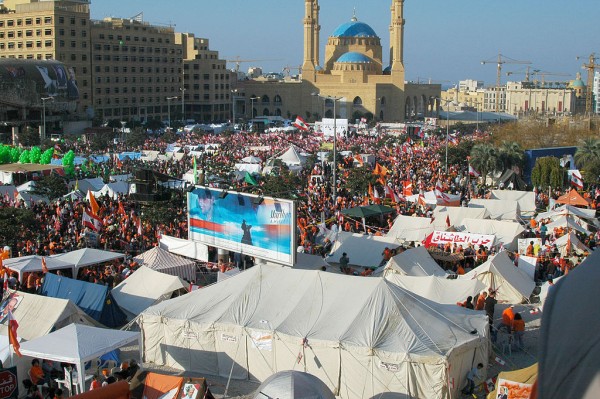
December 2006, Pro-Syria rally in Beirut, Lebanon
Sectarian tension between Lebanon’s Sunni and Shiite factions has been escalating as conflict in Syria is spilling over its border. A car bomb exploded on January 2, claiming five, in Beirut’s suburb largely controlled by Hezbollah. Less than a week prior Mohammad Chatah, former Finance Minister, was killed along with six others by a car bomb detonated by a remote on December 27.
Lebanon is in the midst of a shadow war between Iran supporting Hezbollah, Lebanon’s Shiite political party, and Saudi Arabia backing Lebanon’s Sunni politicians. Lebanon’s Sunnis largely support the Sunni rebel fighters in Syria, while its Shiite population supports the Shiite minority in Syria. Hezbollah has vehemently supported President Assad by sending thousands of its fighters to protect its long-time ally, Bashar al-Assad. In response to Hezbollah’s growing intervention in the Syrian civil war, there has been an increase in support for Syrian rebels with the emergence of more homegrown Sunni militants and more vocal Sunni political elites.
Although many believe Lebanon is not likely to slip into a civil war of its own, several fear this recent wave of violence will spiral into a greater conflict as tensions between Lebanon’s factions intensify.